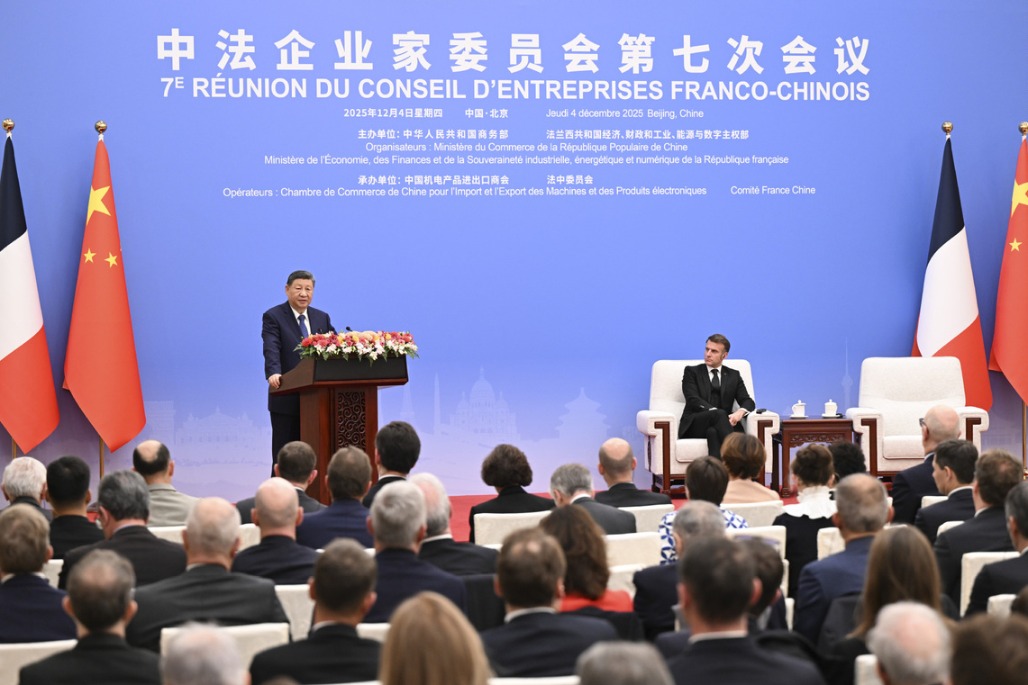Sinologist bringing fresh attention to Lao Tzu's masterpiece in Latin
By Yang Cheng in Tianjin | China Daily | Updated: 2024-08-15 07:06

Misha Tadd, a distinguished sinologist specializing in Lao Tzu (571-470 BC), also known as Laozi for both his name and his philosophical book Tao Te Ching, is all set to release his latest research achievement on the masterpiece.
The work, also called Laozi, emphasizes the pursuit of natural transformation and truth, while cautioning against wasteful efforts in ways that do not align with the cosmic order.
This philosophy stands as one of the most profound and influential thoughts in China, with key tenets including noninterference governance and harmonizing with nature.
Tadd mainly does research on the book, and the new attempt will be a re-edited and compiled 245-page Latin version of Tao Te Ching from 1729.
With his upcoming book, Tadd, a native of the United States and an associate professor as well as the director of the Global Laozegetics Research Center at Nankai University, is expected to bring fresh attention to the classic work to the global research community.
Since founding the center in April 2023, the first of its kind in the field of Laozi studies worldwide at Nankai University, Tadd has garnered global interest, with 64 consultants, including foreign experts from 13 countries such as Thailand, Germany, Denmark, and the United States.
His book, The Complete Bibliography of Laozi Translations: A Global Laozegetics Reference, which delves into 2,052 translated versions of Tao Te Ching in 97 languages, has made waves in the mainstream media in China.
Media outlets and prominent philosophy experts have commended Tadd for his research in the exegetics and translations of Laozi, an area that few Chinese philosophy researchers have ventured into but one that merits further study.
Chen Guying, a 90-year-old philosophy expert at Peking University, has remarked at various academic forums, saying, "I have amassed around 300 versions of Laozi in various languages. I estimated there were 500-600 translated versions worldwide. My acquaintance with Tadd has revealed a significantly greater number of translations in existence."
Since the establishment of the center, Tadd has gradually acclimated to the high regard from the Chinese people and adapted to his new working environment.
Tadd, 44, said he started to explore Chinese philosophy studies when he started his postal doctoral fellowship at Peking University in 2014.
He transitioned from traditional methods of Chinese philosophy research to focusing on the crucial need for diverse translations of Laozi.
Tadd's fascination with Laozi began at the age of 14 in a library in a small town in Massachusetts, leaving an enduring impact on his academic and professional pursuits.
He noted, "Many foreigners, even by those in Iran, have embraced Laozi. During my studies, I encountered 41 translated works on Laozi in that Islamic country."
German philosopher Martin Heidegger (1889-1976) collaborated with researchers and translators on an 81-chapter translation of Laozi, completing only eight chapters, a fact that he found regretful.
The influence of Laozi extends beyond academia, with figures like British musician George Harrison (1943-2001) incorporating Laozi's words into one of his songs.
The popular US film Kung Fu Panda also champions the concept of power of softness, a central tenet of Laozi.
Tadd highlighted that Laozi's teachings offer a universal outlook on life, "making them easily accessible to foreigners compared to other Chinese philosophies with more historical complexities."
In his research, Tadd observed that while some foreigners are drawn to traditional Chinese medicine and practices like tai chi, the impact of Laozi's philosophy transcends mere cultural elements.
Currently, as the director of a prestigious university's research center, Tadd is adapting to managing an array of responsibilities and collaborations with global experts.
He reflects on the need to balance research and management, a decision influenced by the wisdom of Laozi.
yangcheng@chinadaily.com.cn
























